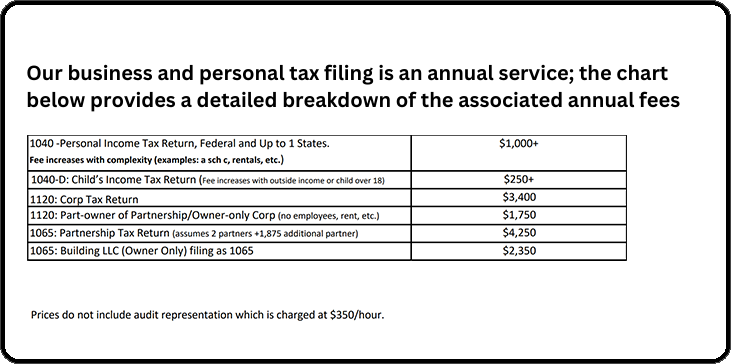Tune in to our podcast series: The Dental Board Room
Listen Now

It’s a strange reality many dentists quietly live with: high income but constant financial stress.
The numbers on paper look strong. Production is steady, collections are solid, and the practice is growing, yet somehow, there’s still that uneasy feeling every month when bills are due.
If this sounds familiar, you’re not alone. Many doctors earning well into six or even seven figures feel trapped in the same cycle. The cash comes in, but it never seems to stay.
Part of the problem is the silent pressure of rising lifestyle costs.
As income grows, so do expectations for bigger homes, nicer cars, more expensive vacations, and private schooling for kids. None of these choices is wrong, but together they quietly increase monthly obligations until “comfortable” turns into “stretched.” The result? A paradox where success on paper doesn’t feel like success in real life.
Lifestyle creep isn’t unique to dentists, but it tends to hit harder in this profession. Why?
Because dentistry combines high income potential with constant exposure to credit and comparison.
Easy access to credit is one of the biggest culprits.
Lenders see dentists as low-risk borrowers, which means financing large purchases often feels effortless. Need a new car? Approved. Dream home? Approved. Equipment loan? Approved again. That easy access can create a false sense of financial comfort.
Then comes social comparison.
Dentistry is a close-knit field. You see colleagues at conferences, on social media, and at study clubs showing off the latest tech, renovations, or vacations. It’s hard not to feel the pull to keep up.
And underneath it all sits a powerful belief:
“If I make enough, I’ll be fine.”
It’s a comforting thought, but income alone doesn’t guarantee financial stability, especially if spending rises just as fast.
At the center of this issue is something few dentists ever calculate: their consumption-to-income ratio.
In plain terms, it’s the percentage of your income that goes toward personal spending. The higher the ratio, the less room you have for saving, investing, or handling surprises. Even small increases at home can disrupt long-term progress. Maybe it’s upgrading a car lease, adding another streaming service, or expanding the house little by little, spending rises until it matches (or exceeds) income.
Meanwhile, dentists who keep their lifestyles modest often end up quietly building significant wealth. Their income creates margin space for savings, investments, and opportunities. They might not look the flashiest, but over time, they’re the ones who reach financial freedom sooner.
It’s not about deprivation; it’s about balance, knowing when “enough” is truly enough.
Another trap that keeps high-earning dentists feeling broke is what can be called the business account illusion.
You see a healthy balance sitting in the practice account and assume you have money to spare. It feels good, reassuring, even. But here’s the catch: that money isn’t all yours.
A portion belongs to the upcoming payroll, lab fees, loan payments, taxes, and other obligations you haven’t paid yet. When you transfer money out without a clear plan, it can quietly throw your financial system off balance.
Over time, those unplanned transfers create tension. You might notice cash feeling tight at the end of each month, or scramble to cover unexpected tax bills.
The illusion is powerful; cash in the account gives the impression of profit, but true profitability depends on what’s left after every obligation is met. Without that clarity, even successful practices can feel unstable.
Many dentists underestimate how many small decisions inside the practice drain long-term cash flow.
A big one is equipment loans without matching deductions.
When you take a large Section 179 deduction in the first year, you remove the future tax benefit, but the loan payments remain. That’s a cashflow imbalance that often catches people off guard in year two and beyond.
Then there’s tax timing.
Accelerated write-offs can make one year look amazing on paper and the next feel suffocating. Add in multiple loans, equipment, remodels, vehicles, and those payments begin to layer. The result is a constant sense of pressure. Even if revenue grows, the margin doesn’t. You’re working harder than ever, but the practice never feels ahead.
Identifying these quiet drains and pacing big financial moves instead of stacking them can make the difference between feeling broke and feeling secure.
Here’s a truth that applies to almost everyone, not just dentists: If savings aren’t automated, they rarely happen. Many doctors treat savings as a “when there’s extra” activity, something that happens after everything else is paid. The problem is, in most months, there’s rarely extra.
Without automatic transfers, saving depends on willpower, and willpower competes daily with short-term wants.
That’s why wealthy-feeling dentists set up systems that remove decision-making.
They have automatic transfers that move money to savings or investment accounts right after income hits. Whether it’s a fixed percentage or a set dollar amount, it’s treated like a non-negotiable bill.
This habit turns saving into a built-in routine, not an afterthought. Over time, it becomes one of the biggest factors separating financial peace from financial anxiety.
Even small oversights can snowball into big headaches. Three common ones stand out:
1. Missing the PTE election.
This simple state-level tax option can save thousands each year, yet many dentists skip it because they don’t know it exists or their CPA doesn’t mention it. Missing it once is manageable; missing it for a decade is expensive.
2. Poor investment choices outside the practice.
Private deals, startups, or “friend investments” often sound exciting but come with hidden risk. When cash gets tied up or lost, it amplifies the feeling of instability.
3. Not knowing your true monthly spending.
This one seems basic, but it’s powerful. Many dentists can’t clearly state what it costs to run their household or practice each month. Without that clarity, it’s impossible to know whether you’re ahead or behind, and that uncertainty keeps the stress alive.
The takeaway? Financial confidence doesn’t come from earning more; it comes from knowing exactly where your money goes.
So, what separates dentists who feel in control of their finances from those who constantly feel behind, even at the same income level?
The answer isn’t luck or higher earnings. Its structure.
1. Stable habits.
They follow consistent routines around budgeting, saving, and reviewing finances. They don’t make impulsive decisions based on the latest tax tip or trend.
2. Clear systems for pay, savings, and taxes.
They know exactly how much to take home, how much to save, and what to set aside for taxes, no guessing, no last-minute scrambles.
3. Predictable rhythms for financial decisions.
Instead of reacting to cashflow swings, they plan equipment purchases, retirement contributions, and tax moves around the calendar. Financial decisions feel calm, not rushed.
Wealthy-feeling dentists don’t necessarily earn more; they just manage what they have with precision and patience.
Income alone has never created security.
It’s the systems behind that income, the habits, structure, and clarity that build true stability.
When you know where your money goes, when savings happen automatically, and when your lifestyle matches your goals, the constant background stress starts to fade.
The truth is simple: you don’t need to earn more to feel wealthy. You just need your money to work in rhythm with your life.
Small, intentional systems, not big paychecks, are what turn financial chaos into lasting peace.
Want to hear real dentists share how they broke free from the “high income, low stability” cycle?
Watch our podcast to hear the full conversation, real stories, honest lessons, and practical ways to create financial calm that lasts.
Wes knows what's best for dental practices. He's been doing this for a long time and he sees lots of practices. He can tell me how our practice is doing, and what we can do to increase our productivity. With past CPA's, there were no ideas. It was all coming from me, saying "I think I can do better, but I don't know how." I come in to meet with Wes and he says "You CAN do better, and I know how."
PracticeCFO is in hundreds of dental offices around the country. They know what numbers should look like. They know what percentages of payroll, rent and supplies should be, and they will hold you accountable to those numbers, which will really help you stick to your plan and your path of growth and savings. That is invaluable
Whenever something comes up, whether it's building or practice related and we weren't sure where the numbers would go, PracticeCFO has been instrumental in helping us figure that out. I can't say enough of how important that is - that it goes beyond that initial partnership. They make sure this business marriage works.
When I go home from work, I don't spend a whole lot of time stressing about what my books look like, or how much I owe in taxes. By using PracticeCFO, the burden of keeping track of a lot of the big financial numbers and metrics are taken off my plate.
PracticeCFO helped me develop a plan for the future. I have colleagues that work with other accountants that don't have a plan - they just look at the numbers of the practice and that's it. There's no plan for 10, 20 years from now. But with PracticeCFO, you get that. PracticeCFO makes you feel like you're they're only client.
(In reference to his practice sale) What could've been super stressful, wasn't! When picking John and Wes, it was from word of mouth recommendations and other people's experiences from the past that really did it for me. And it turns out that those recommendations were right on the line.
Wes knows the business side of dentistry. His comprehensive plan will organize your personal and professional finances so you can focus on taking care of patients. Massive ROI.
I can’t say enough good things about everyone at PracticeCFO. Everyone on the team is professional, organized, knowledgeable, helpful and kind. They also respond to emails and phone calls immediately and are always happy to help. They have helped me navigate year-to-year as a business owner. PracticeCFO gives me peace of mind that my business is in good hands.
I love Practice CFO! They have helped me obtain a practice and maintain a practice. They are incredible people who are on top of everything and make owning and running the business portion of a practice easy. They couldn’t be better for my business and my sanity. They have every detail of the business and taxes taken care of where all I have to do is show up and follow their easy steps to success!
Practice CFO has the best tools I’ve seen for personal tax and financial planning in addition to top-tier corporate tax and accounting services. I have been very pleased with the level of quality service. They manage my monthly bookkeeping and accounts payable. It is a great system and saves me a ton of time, and it allows us to have monthly financial statements within a week of month end.

This will close in 0 seconds